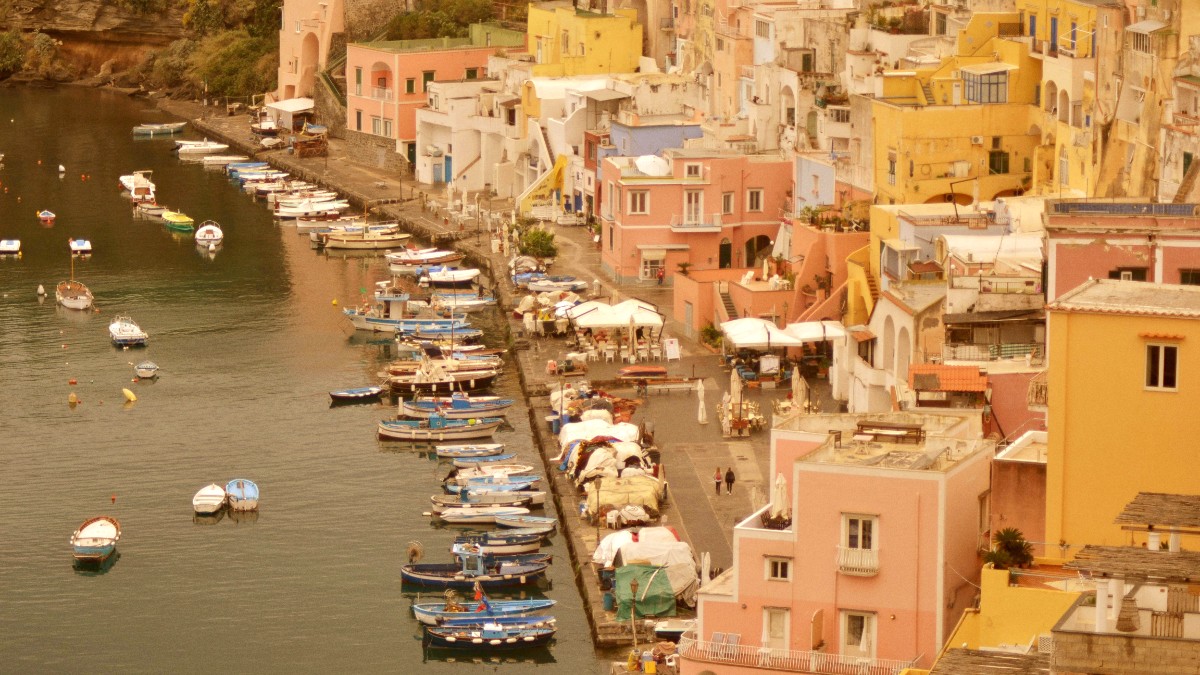
Campania, Italy
Vivara Island, connected to Procida, is a state nature reserve and a protected marine area. Its fragile ecosystem is carefully managed to preserve biodiversity.
Italy has established recycling programs for plastic, glass, paper, and organic waste. Visitors are encouraged to separate waste into designated bins and avoid littering.
As a small island, Procida's fresh water resources are finite. Practice water conservation during your stay by taking shorter showers and turning off taps.
Always use basic Italian greetings like "Buongiorno" or "Buonasera" when interacting with locals or entering establishments. Observe local customs during festivals or religious celebrations, avoiding disruption.
When visiting churches, speak quietly, dress appropriately (shoulders and knees covered), and do not disturb any ongoing services or prayer. Silence your mobile phone to maintain a respectful atmosphere.
Support local artisans and businesses that preserve traditional crafts and culinary techniques. This helps maintain the island's unique heritage.
While the colorful houses of Corricella are appealing, remember that it is a working fishing village and a residential area. Avoid disrupting daily life or photographing private homes without explicit permission.
Seek accommodations that implement energy-efficient lighting, water-saving fixtures, and local sourcing.
Find Eco StaysChoose operators committed to respecting marine life and the environment during boat tours. Consider G Adventures.
Ethical ToursEngaging respectfully with local culture deepens your travel experience.
Your spending choices directly affect the local economy. Make choices that benefit the Procidan community. Consider reusable products from Package Free Shop to reduce waste and support sustainable businesses.
Choose locally owned B&Bs, guesthouses, restaurants, and shops. These businesses recirculate money within the local community, supporting families and preserving the island's unique character.
Prioritize spending your money within the local Procidan economy. This means dining at traditional trattorias, buying fresh produce from local markets, and purchasing souvenirs from independent shops, rather than seeking out chain businesses (which are few on the island). This contributes directly to the well-being of the community.
Look for products made locally by artisans. This ensures that your spending directly benefits the craftspeople and helps sustain traditional skills. Inquire about the origin of products if unsure.
While Procida has no specific reported issues with exploitation, be aware of the origin of products and services. Secure that services are provided by legitimate local businesses and that prices are fair. Avoid engaging in activities that might cause harm to the environment or local community.
Consider offsetting your flight's carbon footprint through reputable carbon offset programs like Terrapass. When traveling to and from Procida, choose slower ferries (traghetto) over faster hydrofoils (aliscafo) where time allows, as they generally have a lower carbon footprint per passenger. On the island, prioritize walking, cycling, or using public transport (buses) over private car or scooter rentals to reduce emissions.
Use reputable programs to neutralize your air travel impact.
Slower ferries (traghetto) often have lower carbon footprint per passenger than hydrofoils.
Prioritize walking, cycling, or public buses over private vehicles on Procida.
Do not litter, especially on beaches or in the sea, to protect the delicate island ecosystem.
Carry a reusable water bottle. Procida's tap water is safe to drink, and refilling your bottle reduces plastic waste, which is notably important for an island ecosystem.